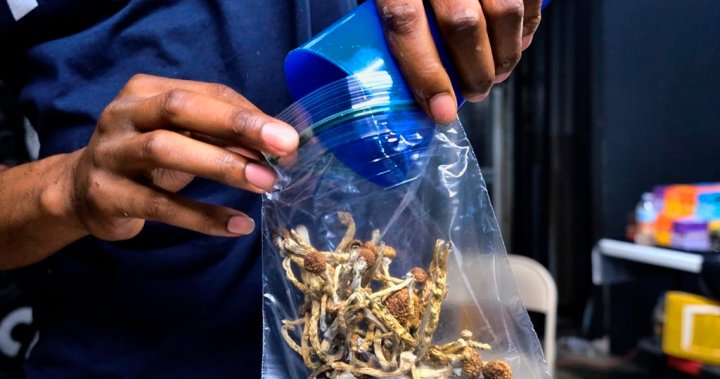A UBC expert on drug policy says B.C. should carefully observe what happens in states south of the border that have just decriminalized some or all hard drugs — and see how those policies could hypothetically be applied here.
People caught with small amounts of heroin, cocaine, LSD and other drugs will have the option of paying US$100 fines or attending a free addiction recovery centre instead of facing arrest and the possibility of time in prison after Oregonians voted to pass Measure 110 on Tuesday.
“Punishing people for drug use and addiction is costly and hasn’t worked. More drug treatment, not punishment, is a better approach,” reads a statement previously issued by the Oregon Nurses Association, the Oregon chapter of the American College of Physicians and the Oregon Academy of Family Physicians.
Read more:
The U.S. election could change the cannabis industry. Is Canada ready?
Mark Haden, adjunct professor at the UBC School of Population and Public Health, agrees wholeheartedly.
“The drug war needs to come to an end. We need to have a health approach to drugs, not a criminal justice approach,” he told Global News.
“And so the more examples that we can see around the United States and Canada of how drugs could be regulated in a way that’s helpful to us, the better it is.”
Haden said criminalizing people who use drugs has the effect of disproportionately incarcerating people of colour. It also, he said, means governments have to foot the bill for that, and can’t collect taxes on the revenue of drug sales as they would be able to if they were regulated.
“Slowly the drug war rhetoric is crumbling under the sheer weight of its own ineffectiveness and harm that it does to all of our society,” he said.
Read more:
Oregon to become first state to decriminalize hard drugs, other states adopt recreational pot
Oregon also voted Tuesday on Measure 109, which legalizes the psychotherapeutic use of psilocybin — otherwise known as psychedelic mushrooms.
Haden called that decision for state health authorities to therapeutically provide the drug to patients at regulated treatment facilities very exciting and said it’s something we should watch very carefully here at home.
“How would it be — if our health authorities started to take psychedelic healing seriously — how would they actually integrate that into their services?”
Haden said the legalization in Oregon will make it much easier for observational research on what patients taking psilocybin would actually experience.
“Normally with research, you have to give somebody a medicine, and then you have to go through a huge number of regulatory hurdles in order to do that, and it can actually cost millions,” Haden said.
Read more:
B.C.’s top doctor urges province to decriminalize possession of hard drugs to address overdose crisis
“But to be able to just observe, without giving anybody anything — it’s given by the health clinic that’s currently being legalized — so it makes research a whole lot easier and quite frankly less expensive.”
Studies out of New York University and Johns Hopkins University have found psilocybin can significantly improve symptoms of anxiety and depression.
Public health officials in B.C. have strongly voiced support for decriminalizing possession of small doses of drugs for personal use, as has the Canadian Association of Chiefs of Police.
In 2019, provincial health officer Dr. Bonnie Henry released a special report on the matter, which said stigma often leads drug users to hide their usage and creates barriers to accessing harm reduction and treatment services — often with tragic consequences.
Read more:
B.C. premier formally asks federal government to decriminalize illegal drugs
In July of this year, B.C. Premier John Horgan formally wrote to Prime Minister Justin Trudeau asking the federal government to act on decriminalization.
“Criminal prohibitions are ineffective in deterring drug use, and criminalization of drug possession directly leads to both individuals and systemic stigma and discrimination that prevent people from seeking services,” Horgan wrote.
According to the B.C. Coroners Service, 1,202 people died of illicit drug overdoses from January to September 2020 — the highest number in at least 10 years.
B.C. declared a public health emergency in April 2016 in response to the opioid crisis.
© 2020 Global News, a division of Corus Entertainment Inc.

